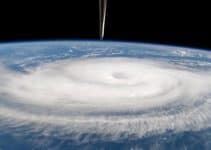The mass extinction of marine life from ocean acidification has been revealed from fossil evidence 66m years ago which wiped out 75% of marine species. The reason was carbon emissions that made the ocean more acidic.
The seas are again getting more acidic as a result of absorbing carbon emissions from the burning of fossil fuels like coal, oil, and gas. According to scientists, the latest research warns that humanity is responsible for potential “ecological collapse” in the oceans, which generates 50% of the oxygen we breathe.
After a giant meteorite hit the Earth, dinosaurs along with three-quarters of marine species were wiped out. When researchers carried out chemical analysis of the small seashells in sediment that were laid down just after the strike, they found a sharp drop in the pH of the ocean in the century to the millennium.
The ocean became more acidic because of the meteorite impact and dissolved the chalky shells of many species effectively. Another reason could be large-scale volcanic activity, but this happened over a much more extended period.
The meteorite strike vaporised the rock consisting of sulphates and carbonates, causing sulphuric acid and carbonic acid to rain down. It acidified the ocean. Carbon dioxide level in the atmosphere also increased after there was mass die-off of plants on land after the strike.
“We show ocean acidification can precipitate ecological collapse,” said Michael Henehan, the lead author of the study who is associated with the GFZ German research centre for geosciences in Potsdam. “Before we had the idea, but we did not have the empirical proof.”
After the strike, the pH dropped by 0.25 pH units in the 100-1,000 years, the researchers found. There may have been even a more significant drop in pH in the decade or two after the strike. The scientists are examining other sediments for finer detail.
Henehan said: “If 0.25 was enough to precipitate a mass extinction, we should be worried.” As per the estimate of the researchers, if carbon emissions are not stopped, by the end of this century, the pH of the ocean will drop by 0.4 pH units or by 0.15 units in case the global temperature rise is restricted to 2C.
Henehan said: “We may think of [acidification] as something to worry about for our grandchildren. But if it truly does get to the same acidification as at the [meteorite strike] boundary, then you are talking about effects that will last for the lifetime of our species. It was hundreds of thousands of years before carbon cycling returned to normal.”
The research, published in the journal Proceedings of the National Academy of Sciences analyzed the sediments found in caves that were used as a hideout by people against the Nazis during the World War II, which Henehan encountered by chance during a conference field trip in the Netherlands. “It was so lucky,” said Henehan.
The rocks contained foraminifera, small-shelled marine organisms. “In the boundary clay, we managed to capture them just limping on past the asteroid impact. But you can see their shell walls were much thinner and poorly calcified after the impact,” he said.
The acidification and other stresses, such as the “nuclear winter” has the knock-on effects that followed the impact, and finally drove this foraminifera to extinction, he said: “You have the complete breakdown of the whole food chain.” In recent times oceans also faced additional stresses, from global heating to widespread pollution, overfishing and invasive alien species, he explained.
Phil Williamson, at the University of East Anglia, who was not involved in the research, said: “It is relatively easy to identify mass extinction events in the fossil record, but much harder to know exactly what caused them. Evidence for the role of ocean acidification has generally been weak, until now.”
He said that while making the comparison between the acidification spike 66m years ago and today, caution was needed: “When the asteroid struck, atmospheric CO2 was naturally already much higher than today, and the pH much lower. Furthermore, large asteroid impacts cause prolonged darkness.”
Williamson added: “Nevertheless, this study provides further warning that the global changes in ocean chemistry that we are currently driving have the potential to cause highly undesirable and effectively irreversible damage to ocean biology.”
According to Henehan, 66m years ago, generally the lower ocean pH might have made shelled organisms more resilient to acidification. “Who knows if our current [marine] system is as well set up to cope with sudden acidification?






